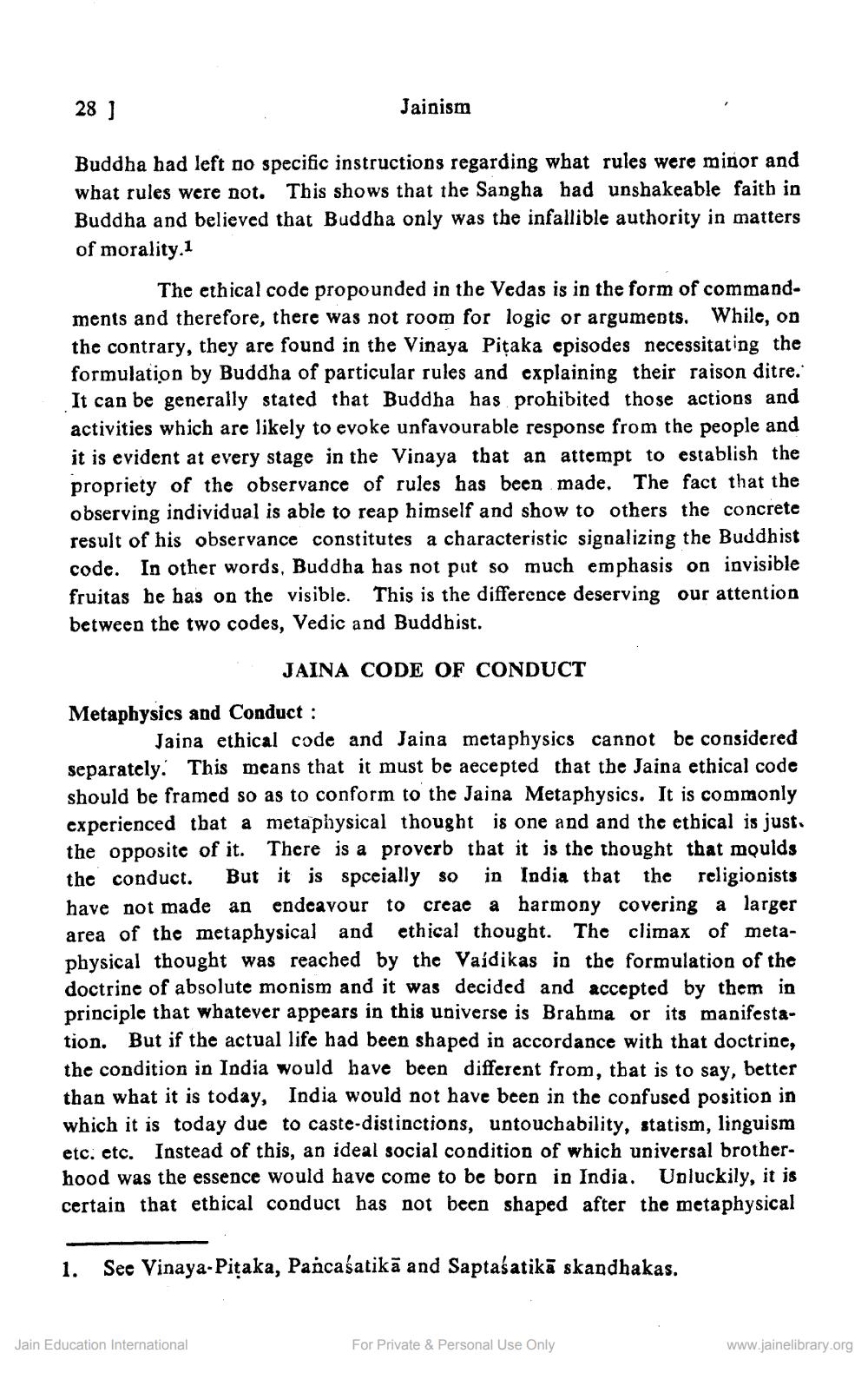________________
28 )
Jainism
Buddha had left no specific instructions regarding what rules were minor and what rules were not. This shows that the Sangha had unshakeable faith in Buddha and believed that Buddha only was the infallible authority in matters of morality. 1
The ethical code propounded in the Vedas is in the form of commandments and therefore, there was not room for logic or arguments. While, on the contrary, they are found in the Vinaya Pitaka episodes necessitating the formulation by Buddha of particular rules and explaining their raison ditre. It can be generally stated that Buddha has prohibited those actions and activities which are likely to evoke unfavourable response from the people and it is evident at every stage in the Vinaya that an attempt to establish the propriety of the observance of rules has been made. The fact that the observing individual is able to reap himself and show to others the concrete result of his observance constitutes a characteristic signalizing the Buddhist code. In other words, Buddha has not put so much emphasis on invisible fruitas be has on the visible. This is the difference deserving our attention between the two codes, Vedic and Buddhist.
JAINA CODE OF CONDUCT Metaphysics and Conduct :
Jaina ethical code and Jaina metaphysics cannot be considered separately. This means that it must be aecepted that the Jaina ethical code should be framed so as to conform to the Jaina Metaphysics. It is commonly experienced that a metaphysical thought is one and and the ethical is just. the opposite of it. There is a proverb that it is the thought that moulds the conduct. But it is spceially 50 in India that the religionists have not made an endeavour to creac a harmony covering a larger area of the metaphysical and ethical thought. The climax of metaphysical thought was reached by the Vaidikas in the formulation of the doctrine of absolute monism and it was decided and accepted by them in principle that whatever appears in this universe is Brahma or its manifestation. But if the actual life had been shaped in accordance with that doctrine, the condition in India would have been different from, that is to say, better than what it is today, India would not have been in the confused position in which it is today due to caste-distinctions, untouchability, statism, linguism etc. etc. Instead of this, an ideal social condition of which universal brotherhood was the essence would have come to be born in India. Unluckily, it is certain that ethical conduct has not been shaped after the metaphysical
1. See Vinaya-Pitaka, Pancasatikā and Saptaśatikā skandhakas.
Jain Education International
For Private & Personal Use Only
www.jainelibrary.org




